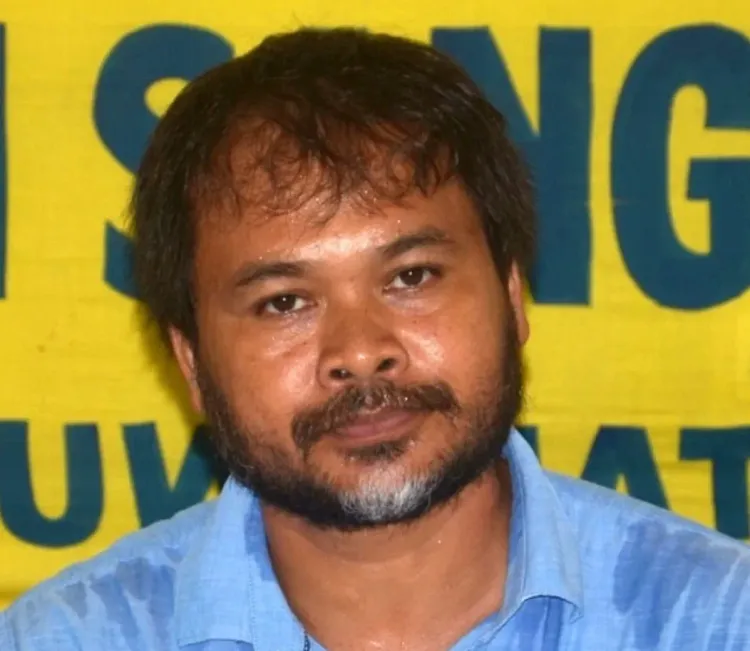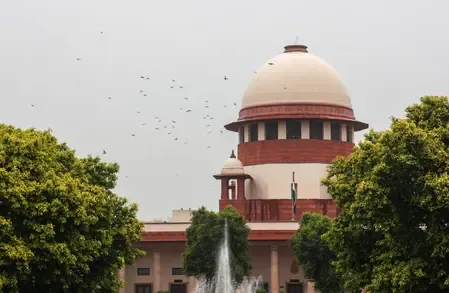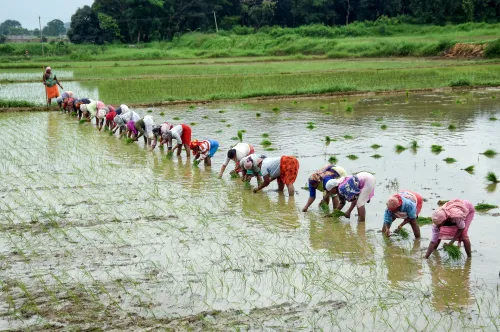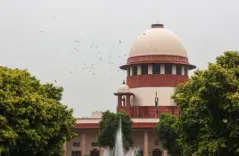Is the Assam government implementing a ‘dangerous political strategy’ to incite communal unrest? - Akhil Gogoi

Synopsis
Key Takeaways
- Akhil Gogoi criticizes the Assam government for its alleged strategy to incite communal unrest.
- The issuance of arms licenses to local residents is seen as a tactic to provoke tensions.
- Gogoi demands the resignation of Chief Minister Himanta Biswa Sarma.
- There are concerns regarding the targeting of professionals amid identity checks.
- Calls for alternative solutions emphasize law enforcement and community safety.
Guwahati, May 30 (NationPress) Raijor Dal Chief and Sivasagar MLA Akhil Gogoi delivered a fierce critique of the Assam government on Friday, alleging it is executing a “dangerous political strategy” designed to incite communal discord in the lead-up to the 2026 Assembly elections.
Gogoi asserted that the recent decision to issue arms licenses to local populations in select districts is a calculated maneuver to ignite Hindu-Muslim tensions under the guise of protecting local communities.
“If the government claims it cannot safeguard indigenous people, it signifies a failure of the Home Department. It is truly shameful,” he stated, demanding the resignation of Chief Minister Himanta Biswa Sarma.
He argued that this initiative is not about security but rather a strategy for electoral gain, accusing Sarma of allowing the proliferation of arms among Rashtriya Swayamsevak Sangh (RSS) members, thus fostering fear within minority communities.
“This is not just a routine policy move; it risks fracturing Assam and disrupting communal harmony before the elections,” he cautioned.
Gogoi drew comparisons to previous tactics employed during the Congress administration, when Sarma was part of that party, stating, “Now, with dwindling support for the BJP, Sarma is repeating these divisive methods.”
The legislator expressed concern over the targeting of professionals, including teachers, amid ongoing identification of suspected illegal immigrants, claiming such actions are intimidation tactics aimed at specific communities.
“This is not governance; it is fear-mongering,” he remarked.
Gogoi elaborated on what he views as a broader strategy: “First, the government distributes arms licenses. Next, individuals are arbitrarily designated as foreigners. Now, local organizations are being used to incite hate. This sequence is not coincidental; it is part of a deliberate plan to divide the state.”
Rejecting the government’s justification for the arms policy as a means of protecting indigenous groups, Gogoi called for alternative approaches.
“If the government genuinely cares for indigenous people, it should fortify law enforcement, deploy more CRPF personnel, enhance police infrastructure, and ensure justice. Distributing weapons to civilians and RSS members is not the solution,” he asserted.
He demanded an immediate retraction of the arms license policy and urged the state cabinet to make all related documents public.
Warning of widespread mobilization if the policy remains in place, Gogoi stated, “This will only breed chaos and ignite communal strife. We will initiate vigorous protests if the government does not change its course.”
In a move intended to enhance self-defense capabilities in Assam’s remote and sensitive regions, the state cabinet has sanctioned the issuance of arms licenses to “eligible residents” in vulnerable and border areas.
Chief Minister Himanta Biswa Sarma announced this decision on Wednesday, referencing Assam’s distinct security challenges and geographic vulnerabilities.
“Assam is a complex and sensitive state,” CM Sarma noted. “We have opted to issue arms licenses to eligible individuals residing in remote, vulnerable, and border regions. We will encourage original inhabitants and indigenous Indian citizens to apply under the provisions of the Arms Act,” he added.









